Natural Sciences (Physical)
The 'Physical' and 'Biological' classifications in Natural Sciences are very flexible, and students often mix modules from the biological and physical sciences, or change their preferred area entirely.
St John's College has a strong history in the Natural Sciences, including among our alumni the double Nobel Prize winning geneticist Frederick Sanger and the physicist Paul Dirac, one of the founders of Quantum Mechanics. We continue these traditions today, with a strong teaching fellowship maintaining broad interests across the sciences. There are at least fifteen Fellows and other teaching staff who are directly involved in supervising Natural Scientists in the College (see 'People'). Recent research by our teaching Fellows has been published in the world leading journals Nature and Science.
The Natural Sciences course at Cambridge is perhaps unique in the UK in its flexibility and broad scope. Throughout, the emphasis is on developing an understanding of principles so that graduates are well equipped to both understand and contribute to future scientific advances. The broad nature of the course is particularly well suited to modern science, where traditional subject boundaries are being abandoned in favour of cross-disciplinary approaches.
The supervision system is integral to teaching at Cambridge, and at St John's you will have regular supervisions, usually in groups of 2-3 students. In the first year you will have 4 supervisions per week, mostly with teaching fellows from the College. The College also offers considerable additional support, including an excellent library, grants towards the costs of essential books and laptop computers and prizes for academic excellence in Natural Sciences.
We are also home to the Larmor Society, the Natural Sciences society of St John's College, named after the eminent alumnus Joseph Larmor. The Larmor Society put on a number of talks spanning all areas of scientific research, and hold a variety of social events throughout the year.
Many students spend the summer carrying out research projects in UK or European universities. Students can also participate in an exchange programme with California Institute of Technology.
Entry Details
UCAS Code: BCF0
Typical Minimum Entry Requirements
A Level: A*A*A
International Baccalaureate: 42 points, with 776 at Higher Level
Essential Subjects: A Level/IB Higher Level in Mathematics and at least 2 other science/mathematical subjects, including at least A* in A Level Mathematics, Physics or Chemistry or including 7 in Higher Level Mathematics (Analysis and Approaches), Physics or Chemistry
Desirable Subjects: A Level Further Maths
Submitted Work: None
Admissions Assessment (pre-registration required): Applicants for Natural Sciences will need to sit the Engineering and Science Admissions Test (ESAT) in mid-October as part of the application to the University. Further information here.
You must register for pre-interview assessments so please do review this information carefully.
What we look for in prospective students
We take a flexible approach in the subject combinations we accept but, whatever the combination, it must be one that gives a sufficiently firm scientific foundation for the subjects that you would wish to take in the very broad first-year course. If you are in any doubt about the suitability of your combination of subjects as a preparation for the Natural Sciences Tripos please contact us well before the deadline for submission of a formal application for advice.
We expect to admit about 30 students to read Natural Sciences every year, with approximately half classed as ‘Biological’ and half as ‘Physical’ Sciences. However, these classifications are very flexible, and students often mix modules from the biological and physical sciences, or change their preferred area entirely.
Admissions Interviews
Those invited for interview will have two interviews, each of 25 minutes, with the Director of Studies and other teaching fellows. We conduct the interviews in a friendly and informal manner with the minimum amount of pressure, but we recognise that candidates will be nervous. We do not expect candidates to have detailed prior knowledge of topics outside of the areas covered at school. The interview is not a test of memory but is concerned with exploring candidates’ ability to analyse and think through scientific problems. Questions often involve deriving a mathematical function and exploring its behaviour. No special preparation for the interview is necessary, but it might help to practice some of the more advanced problems on the Isaac Physics website for the subjects being studied; this is also useful preparation for the NSAA test.
Please find some questions that test qualities we are looking for in the interview on the document here.
Further information regarding interview dates and arrangements can be found here.
People
Directors of Studies
Dr Paul Wood - Natural Sciences (Physical), Chemistry
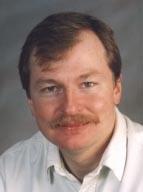
Professor Edward Tipper - Earth Sciences
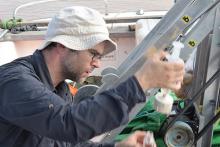
Professor Jason Robinson - Materials Science (Part I)
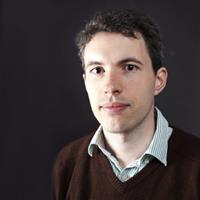
Professor Serena Best - Materials Science (Part II, Part III)
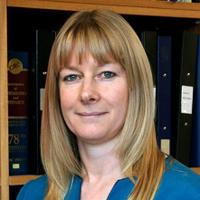
Professor Mete Atatüre - Physics & Astrophysics, Mathematics for Natural Sciences
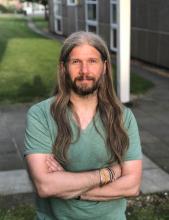
Professor Andrew Woods - Quantitative Environmental Science
Tutor
Dr Sylvana Tomaselli
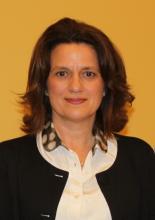
Professor Mete Atatüre
Professor Serena Best
Dr Sue Colwell
Professor Sir Richard Friend
Professor Stephen Gull
Professor Howard Hughes
Professor Tuomas Knowles
Professor Austen Lamacraft
Dr John A Leake
Professor I Nick McCave
Professor Simon Conway Morris
Professor Erwin Reisner
Professor Jason Robinson
Professor Ben Simons
Professor Edward Tipper
Research Fellows
Dr Virgil Andrei
Dr Kadi Saar
College Research Associates
Dr Celia Castillo-Blas
Dr Du Toit
Dr Lauren McHugh
Miss Stephanie Monty
Dr Brennan O'Connell
Dr Motiar Rahaman
Dr Ran Tivony
Dr Zvonimir Vlah
College Teaching Associates
Ms Serena Povia